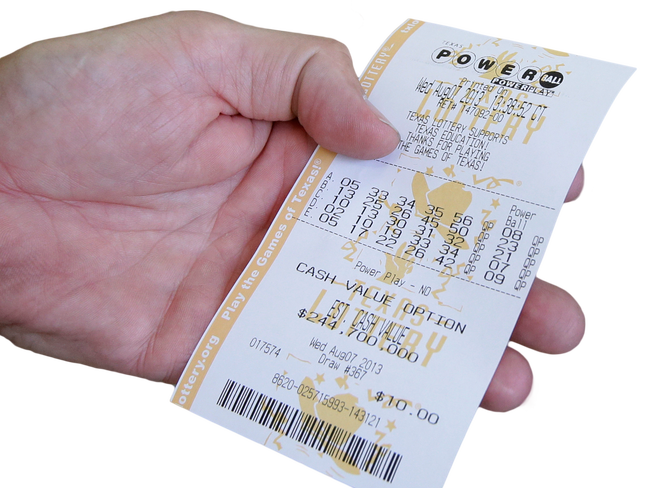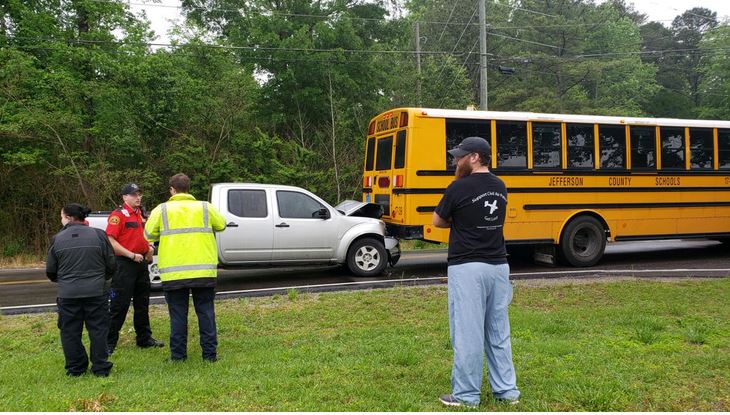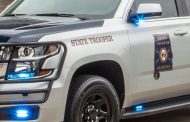By Todd Stacy, Alabama Daily News
MONTGOMERY, Ala. – The Alabama State Senate on Thursday passed a constitutional amendment calling for a statewide vote on a lottery.
Senate Bill 220, sponsored by Sen. Greg Albritton, R-Atmore, would put the question of establishing a lottery on the ballot in next March’s presidential primary, the nearest statewide election. The plan calls for a paper lottery and allows Alabama to participate in multi-state “Mega Millions” jackpots, among others.
The bill passed 21-12, which was the minimum vote total needed to secure Senate passage. The narrow vote came after more than three hours of intense floor debate and deliberation over amendments.
“I’m pleased, a little surprised, and grateful it’s over,” Albritton said. “I came in fully anticipating this to be a very, very close vote, but we never had 21 votes in our head counts.
“I hope the House takes it as it is. I took a number of amendments, but most of those were supporting the direction we wanted to move.”
Albritton also rejected amendments, including one from Sen. Bobby Singleton, D-Greensboro, attempting to add legal protection for the state’s dog track casinos and the electronic bingo games they offer. Singleton and other senators representing areas with existing dog track casinos argued that, as written, Albritton’s bill gives an unfair advantage to the Poarch Band of Creek Indians, a federally-regulated entity that operates casinos in Atmore, Wetumpka and Montgomery.
Senate President Pro Tem Del Marsh, R-Anniston, is a co-sponsor of the bill and engineered its passage out of committee earlier this week. He said it’s a simpler bill than one offered by Sen. Jim McClendon, R-Springville, which would have allowed “video lottery terminals” at dog tracks in Greene, Lowndes, Jefferson, Macon and Mobile Counties.
“We’ve been working on this bill and talking to people about the lottery issue for some weeks,” Marsh said. “Our job is to get something out that has a chance to get to the people. That’s was my goal today and I think we did that.”
One amendment that was accepted and became part of the bill was a provision protecting the Birmingham Race Course and its gambling machines. Amendments seeking to protect the other tracks were rejected, and Albritton later explained that only the Birmingham amendment contained language that would limit the expansion of gambling.
If approved, the plan is estimated to generate $166.7 million a year in revenue. The first nearly $184 million would be deposited in the Alabama Trust Fund to repay money borrowed to cover budget shortfalls in 2013, 2014 and 2015. After that, revenue would be split annually between the Alabama Trust Fund and the state’s General Fund budget.
The Alabama Trust Fund was created in 1985 to capture revenues from sales of offshore drilling rights and royalties from natural gas production. Some revenue from the trust fund feeds into the General Fund, which supports non-education state agencies.
“Personally, I think that it is still a bad bill,” Singleton said. He said alternative lottery proposals, including those with electronic components, would generate “a lot more” than $167 million a year in revenue.
“I want the people of the state Alabama to have a lottery. I think they should have the right to vote,” Singleton said. “… But I want the people to vote on something that means something for the state of Alabama and that’s going to do us some good.”
Senate Bill 220 does not allocate any money for education. However, Sen. Arthur Orr, R-Decatur, who chairs the Senate education budget committee, attempted to add an amendment that would have allocated 25 percent of the revenues to education. His amendment was rejected by a voice vote.
“As education budget chair, I believe it’s important to fund education out of lottery proceeds because, presumably, we will be losing sales tax revenue from what will now be spent on lottery tickets,” Orr said. He voted against the bill.
In 2019, the budget for the Education Trust Fund was $6.6 billion while the budget for the General Fund was just over $2 billion.
An expected rise in Medicaid, the Children’s Health Insurance Program (CHIP) and state prison costs in 2020 – which would come out of the General Fund – was cited by Albritton as the primary reason sending the potential new revenue to the General Fund.
McClendon also argued against the bill on the Senate floor and voted no on it. He later said that his constituents want a chance to vote on a lottery bill, so he will not oppose it moving forward.
Local senators were split on the bill with Sen. Shay Shelnutt, R-Trussville voting yes while Sen. Jim McClendon, R-Springville and Sen. Dan Roberts, R-Mountain Brook whose district reaches into Trussville, both voting no.
“I vote yes because I believe in the right of the people to vote,” Shelnutt said.
After the bill passed, McClendon went to the well of the Senate to offer his support going forward.
“When I got into this lottery business, my entire goal was to make it so my constituents wouldn’t have to drive down Interstate 20 to Georgia to buy lottery tickets. Ultimately, that’s what this bill will do, and that’s good.”
Roberts, who represents portions of Talladega County, spoke against the bill on the Senate floor, arguing against state-sponsored lotteries on moral and economic grounds.
“It’s a fool’s errand,” he said. “This system is built on the necessity that most people lose. That’s how we’re funding this thing. It preys on the poor. A lottery supports and encourages yet another corrosive addiction that prays upon the grieved and hopeless and the dreams of those trapped in poverty.
“We’re teaching citizens of our state to be foolish with their money.”









